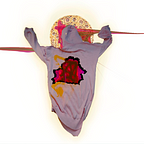Democracy Pending Issues: Finding The Way Of Conflicts Resolution
Democracy as a universal system of governance is rarely adapted to the non-universal world of the eastern countries.
October 2020, when the rest of the world is working on overcoming the second wave of COVID-19, the war in Nagorno-Karabakh is unlikely to stop. Alongside with these terrifying events, the protests in Belarus, the revolution in Kyrgyzstan, and even Russia come up with a bang.
As the experience suggests, the most reasonable way of resolving this kind of conflict is the democratic way of negotiations, sanctions, and laissez-faire tactics that leave decision-making at a mercy of civil society.
At the same time, the civil society of the up-mentioned and non-democratic countries remain in a constant state of local conflicts or oppression by their governments. Here we face a sensitive issue of the democracy establishment and conflict resolution in autocratic countries:
How democratical principles should be adapted to the reality of the countries where the people’s rights have never been taken into account by their state? Will these principles work out as well as they work in democratic countries? Such questions deserve a closer look.
Types and principles of democracy
Let’s start with the definition of democracy. According to the Britannica dictionary, democracy stands for “ruled by people”. The thing is that it only matters what kind of people and how they are chosen to do so. There is a variety of democracies: direct democracy, representative, and constitutional, consequently the way the ruler is chosen defines each type. Another kind of democracy that hasn’t been understood so well — a monitory one. This one is a special one where the ruler is precisely observed and led by private and public agencies.
All of these types are brought together by the basic democratical principles such as the legitimacy of the ruler, justice, freedom.
Current political philosophers refer to democracy as the most progressive form of governing: respect for individual rights and freedoms, a decent level of public healthcare services, and education. All those mentioned are provided by fewer local conflicts and wars, and, as their consequence presence of personal freedoms for everyone, which makes this type of government more efficient in developing the country, compared to the autocratic or nondemocratic types of government.
These pros of democracy work well in western countries where the level of personal and social responsibility is already high, self-consciousness, law obedience, and norm performance are also exemplary. They are the most crucial points in establishing a system that is based on the law. Let’s see what obstacles might face the sudden emergency of democracy in an autocratic country.
Pending issues of democracy
One of the biggest challenges for democracy now is fulfilling individualistic liberties in the countries of the former Soviet Union. basic democratic rights such as freedom of speech, press, and will can’t be fully expressed, as for the past 30 years the elites and general population of this region have been under huge oppression and totalitarian control. It has caused some kind of atrophy of social and personal responsibilities.
Cultural and religious differences between democratical and traditionalist societies also may differ the way democracy could work there out. A simple example shows that religion and its doctrines affect society more than anything. The countries, where church and civil society aren’t separated, is a clear example of how their inhabitants are less likely to agree that personal freedoms are important for social development. Personal freedom isn’t the only deal-breaker — other democratical cornerstones are always questioned by so-called “cultural traditions” and religions these countries population confesses.
Willing to adapt to new norms of the society is another pending issue for the newborn democracies. it is an entire issue to adapt to the new norms that come with the new government, for the civil society of post-authoritarian countries. Let´s try to imagine how long it will take for the rest of the population If the elites of these countries are willing to adapt right now?
Keypoints
Since the piece started with the listing of local conflicts and wars of October 2020, it’s time to stress the main matters of concern. Eastern European countries, as long as the whole region of the former Soviet camp, one way or another is going to become a democracy, and unfortunately, this transformation already takes lives in wars and police clashes.
So, the matter of concern for democratic leaders now is how to resolve armed conflicts between authoritarian countries on their way to democracy. Using only laissez-faire tactics and negotiations.
How to adapt the society of post-authoritarian regime to the new democratic norms, where personal freedoms, human rights, and responsibilities are the pillars on which stands democracy? And how to raise the level of living not by leaching culture and traditions, but by raising the consciousness of the population and law-obedience of the elites?
